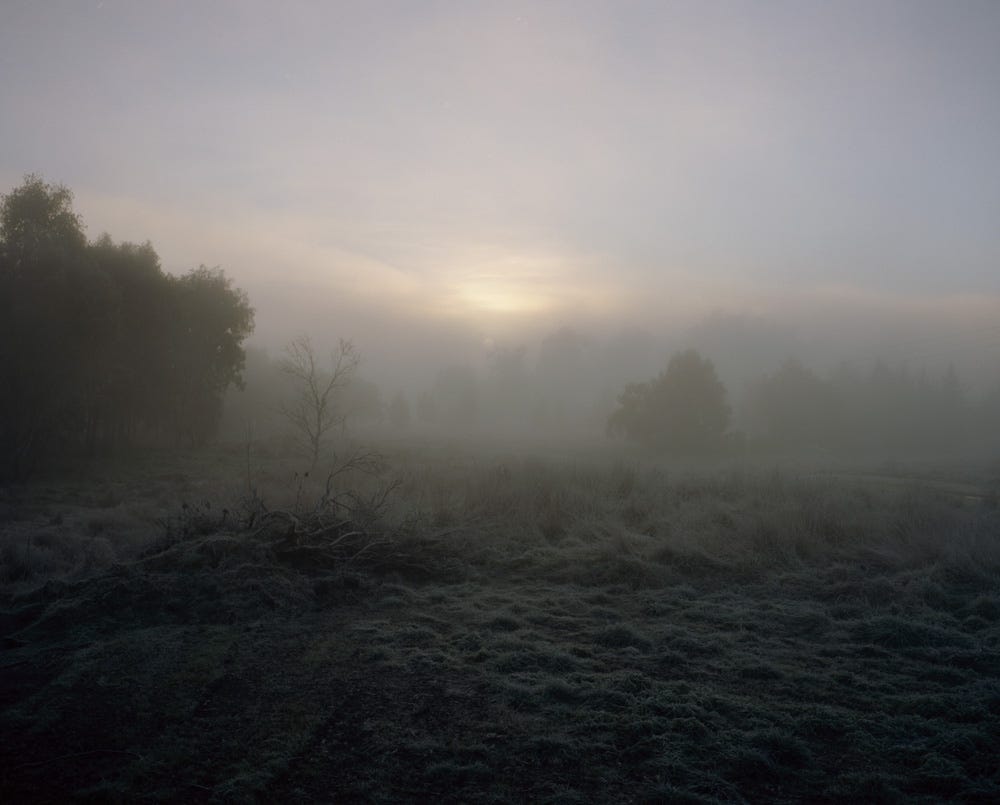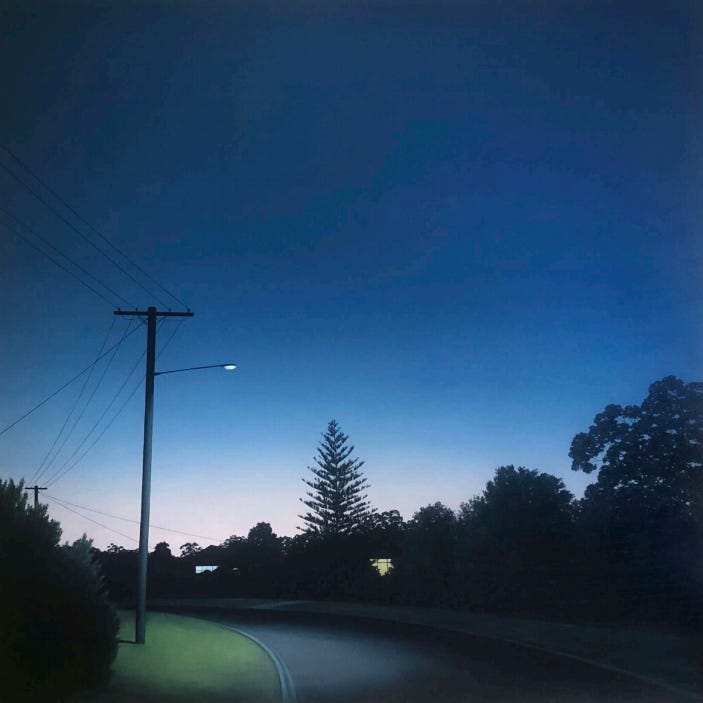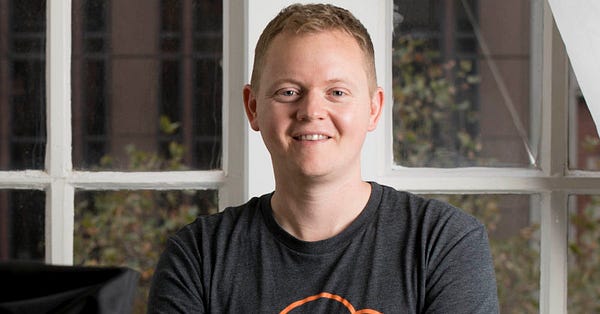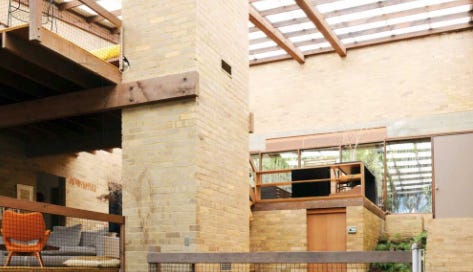Australia's greatest assets are not the rocks under the ground, but the men and women walking on top of it.
Ten things to read about Australian exceptionalism Pt. II

Robin Boyd’s Featherstone House
Note: You can read part one of this week’s newsletter here. This is part two.
I wrote last week about the way Australian culture has long struggled with its self-anointed ‘ugliness, awfulness, and second-rateness’. That part of our culture started to shift in the 1970s and 1980s, during a period of Australian enlarging that kickstarted nearly 30 years of uninterrupted economic growth.
1. The word enlarging isn’t mine. It’s historian Manning Clark’s, whose position is summarised in Richard Denniss’ Quarterly Review essay Dead Right:
Manning Clark described modern Australia as born of a battle between the “enlargers”, who sought to make the most of their freedom from Mother England on what they saw as their empty continent full of opportunities, and the “punishers and straighteners”, who were reluctant to give away the power of the prison guards and governors who defined so much of the early culture of the great big penal colony they had set up.

Wouter Van De Voorde, Tumut from (Hume) Sunrise
More than anyone in Australian political history, Paul Keating embraced the language of enlarging. In Kerry O’Brien’s book ‘Keating’ he said:
“I came to a view early in life that in the great business of enlargement—small movement here, big movement there—the profession with the greatest leverage was public life, and the archetypal leader was the big-brained, heroic Churchill, the one person who wouldn’t trade with the criminal, Hitler. I was drawn to that great moral clarity. I thought, if this is the business this guy is in, then this is the business to be in.”
Related: In my top five books of all-time is Don Watson’s ‘Recollections of a Bleeding Heart’ which recounts his time as a Keating speechwriter.
2. In Keating’s Republic speech to the House of Representatives in 1995, he said:
“Each and every Australian should be able to aspire to be our Head of State. Every Australian should know that the office will always be filled by a citizen of high standing who has made an outstanding contribution to Australia and who, in making it, has enlarged our view of what it is to be Australian.”
Related: It is 2020, and Australia's Head of State is the Queen of Australia, Her Majesty Queen Elizabeth II.

Nearly fourty years ago, The Economist wrote: “If you look at history, Australia is one of the best managers of adversity the world has seen – and the worst manager of prosperity”.
3. History is repeating. As Paul Bassat said this week:
"My personal view is that it is possible that the two best economic policies in Australia over the last 30 years have been bookended by the introduction of a super system by the Hawke Keating government, the early 90s and JobKeeper by the Treasurer, Josh Frydenberg three months ago."

It Got Dark So Quickly, Fiona Barrett-Clark
When asked to rate their general satisfaction with life on a scale from 0 to 10, Australians gave it a 7.3, higher than the OECD average of 6.5, but lower than Canadians, the Dutch, the Swiss, Danes, Norwegians, and Finns.
If this was an NPS survey, we’d be a country of neutrals. Three decades of growth hasn’t left us jumping for joy. To update the George Megalogenis line from 2017: “a 7.1% per cent unemployment rate after thirty years of uninterrupted growth is a poor return for those on the margins of society”.
Or maybe it’s as Megalogenis described in 2006 in his book, The Longest Decade:
“The boom has not secured social cohesion. Instead, it has encouraged a mass outbreak of social climbing. Deregulation has taught Australians to see their self-worth through bricks-and-mortar and the size of the bribe they can extract from government. Avarice is the new black, and the political system has sanctified it with the term ‘aspirational voting’.”
4. Nearly ten years ago, The Economist wrote something as true today as it was then:
“Australians must now decide what sort of country they want their children to live in. They can enjoy their prosperity, squander what they do not consume and wait to see what the future brings; or they can actively set about creating the sort of society that other nations envy and want to emulate.”

Brett Whiteley - ‘Panorama’
One of the byproducts of the enlarging of Australia was the spivvery. A spiv is ‘a man, typically a flashy dresser, who makes a living by disreputable dealings’.
5. In 1990, the AFR quoted Treasurer Keating saying:
"It's been a murky part of our economic history these last few years and these characters that are picking up hundreds of millions of dollars worth of debt then walking away and leaving people to pick up the pieces are pretty nasty.”
The one good thing, if there's any silver lining in this slowdown we're going through now, at least it will de-spiv Australia."

The fact you don’t hear the word spiv any more says a lot about how far we’ve come.
6. Unrelated, but interesting: “The Sydney Ducks was the name given to a gang of criminal immigrants from Australia in San Francisco, during the mid-19th century. Because many of these criminals came from the well-known British penal colonies in Australia, and were known to commit arson, they were blamed for an 1849 fire that devastated the heart of San Francisco, as well as the rampant crime in the city at the time.”
- Via Wikipedia, of course.

Trent Parke, The Crimson Line
Australia today is seeing the blossoming of a cohort of entrepreneurs the next generation will aspire to emulate.
“As I said at this dinner a year ago - the greatest assets of Australia are not the rocks under the ground but the men and women walking on top of it.”
Malcolm Turnbull, Remarks at the Minerals Council of Australia Annual Dinner, Parliament House, 2017
And Mike Cannon-Brookes, and Scott Farquhar sit atop that pyramid of aspiration.
7. The Strange Experience of Being Australia’s First Tech Billionaires
“People are interested now in what we’re saying,” Mr. Cannon-Brookes said. “We have a voice. We have a sense of responsibility.”
We should not take for granted that the entrepreneurial heroes we got were Mike and Scott. Not only did they build Atlassian into a global icon, but they are also good people.
8. Watch Scott recount his childhood on Julia Zemiro’s Home Delivery.
Atlassian is a $64B company today, and Mike and Scott are directing their incredible wealth and influence towards building a better Australia:
Pledging 1% of equity, 1% of product, 1% of profit, and 1% of employee time to from Atlassian to charitable causes.
Powering Singapore with Australian solar power via the Sun Cable.
Funding autonomous, electrified transport via a $100M investment in Zoox.
Getting the world’s largest lithium battery installed in South Australia by losing a bet to Elon Musk.
Funding modular battery storage systems to power communities cut off by bushfires and storms.
Supporting Eytan Lenko and Beyond Zero Emissions’ Million Jobs Plan.
And this is just beginning.


9. Last week, Canva announced a new round of funding at an $8.6B valuation.
In the article, Rick said something we all believe at Blackbird.
"Canva is probably the best private software as a service company in the world right now in terms of its growth and scale.”
10. In a separate article announcing the raise, Canva co-founder Cliff Obrecht said:
“Mel and I are committed to giving away all our money to make the world a better place. I think with running such a large company with such a significant valuation now, it’s an obligation on us to use that to be a force for good and make the world a better place, rather than just hoard shit. There’s only so many beds you can sleep in on any one night, and only so many steak dinners you can have.”
The founders that are following Mike and Scott are going to do good too.
For the first time ever, it’s not just our athletes winning gold medals on the world stage. Australian startups are doing the same.



